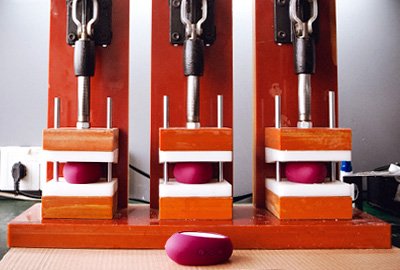
In the enlightened times we live in, we’re now more conscious than ever of choosing products that are not only safe for our bodies, but the environment as well. If our lettuce is organic, our eggs are free-range, and our coffee is fair trade – what about our sex toys?
Unlike products such as food containers, babies’ teething toys, and eating utensils, the industry we operate in can sometimes turn a blind eye the regulation and independent testing that products of like ours deserve, and we are among the voices saying that it is time for this to change.
Until that change comes, we’ll continue regulating ourselves with our own stringent quality standards and sending our products to the world’s leading product safety testing companies such as SGS. But to broaden your options, here are a few more things to keep your eye on when browsing your local sex shop or online store?
A not-so-novel approach
If you look closely at the packaging of a pleasure item and see a variation on the phrase ‘for novelty use only’, take this as a red flag. This classification is for items not expressly intended for sexual purposes, or at least the manufacturer is taking all possible measures to limit any libaility. In these cases such products likely include unsafe materials, knowing full well they will be used for anything but novelty.
Phthalates; pronounced ‘unsafe’
The same items that boast of their ‘novel’ use are the ones most likely to contain suspicious chemicals such as phthalates, and should be avoided. Many sex toys are made from plastic that has been softened with phthalates, and they can have adverse effects on the reproductive process and are linked to increased instances of birth defects and sperm damage. Not only this, but the same kinds of toys that use phthalates can be porous, and thus difficult to effectively clean of surface bacteria between uses.
Scary stuff, right? Well the good news is that phthalates are easy to avoid; all it takes is a good sniff.
Items containing phthalates will generally give off the scent of fresh plastic, or that ‘new car smell’ (which is actually the smell of phthalates – they’re all over the place). If you catch a whiff of this off a toy, take a closer look at the safety icons on the packaging, or speak with a salesperson who can fill you in on the finer points of sex toy safety and hygiene.
So what should you look for instead?
Toys made with silicone, glass, stainless steel, or latex and phthalate-free plastic (read; hard plastic of the ABS variety) are body friendly and also have a long lifespan which keeps them out of landfills for longer and give appropriate directions on recycling. You will notice that they don’t carry the telltale smell of plastic, but more than this, these materials are non-porous for more effective cleaning.
Just as important are listed certifications; the ubiquitous CE logo you see many products indicates that it passes safety and quality requirements for sale in the European Union, while a United States Food and Drug Administration (FDA) approval is a clear signal that the item in your hands is one that can be trusted.
Also search items from companies who innovate new pleasure and experiences into their catalogues. Innovating and award-winning products indicate an active R&D department as well as quality control, so if your chosen pleasure company is pioneering in all-new variations of products or even new advancements in SexTech, they are more than likely worth your time.
Here at LELO, body-safety is what we’re all about, and we want you to know it – if you have any questions about the quality of LELO Pleasure Objects, feel free to contact customercare@lelo.com
[related_article id=”3043″ size=”full” target=”_blank”]

